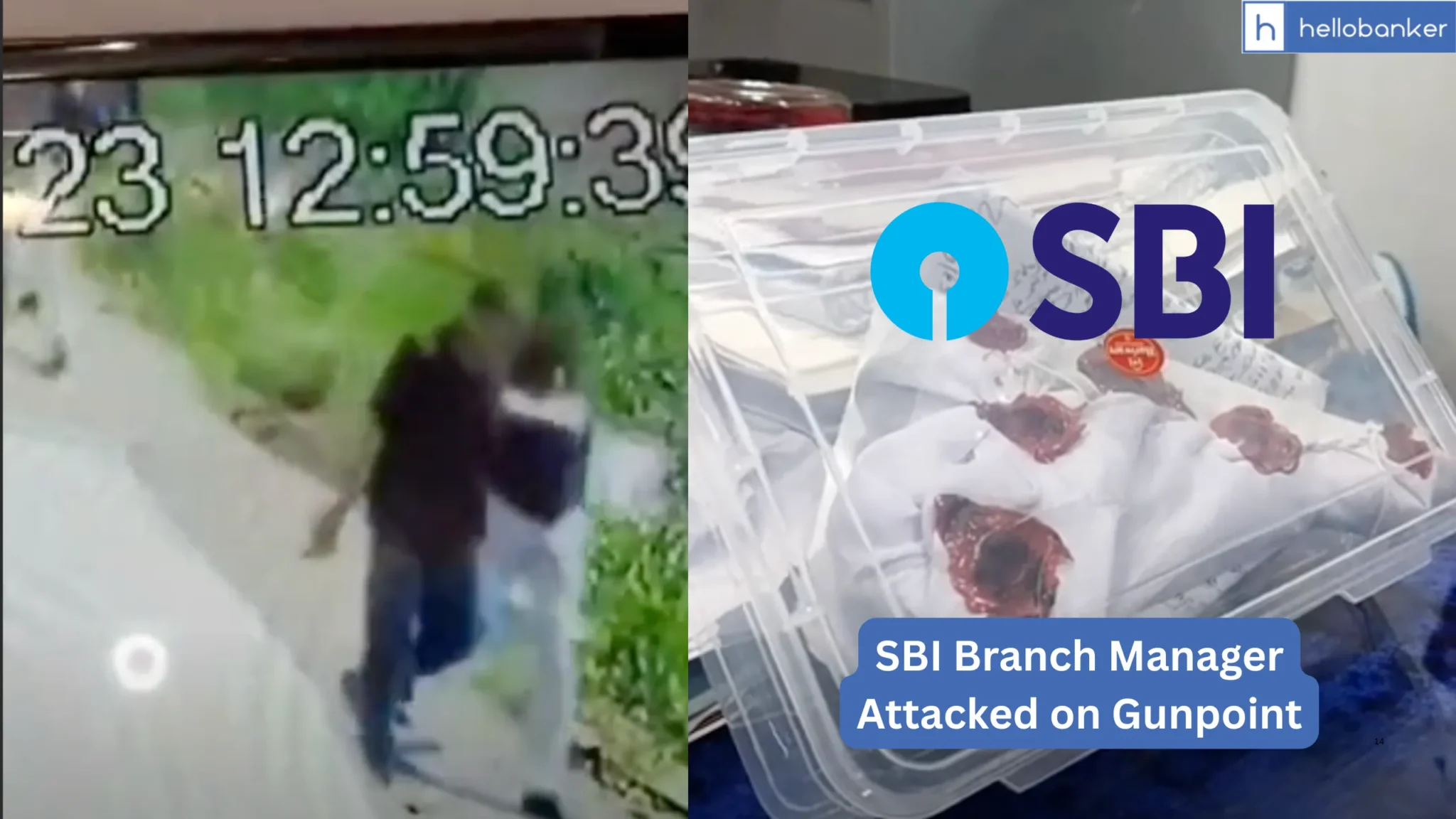Ashok Nagar: In a shocking incident in Ashok Nagar, Madhya Pradesh, the branch manager of the State Bank of India (SBI) was assaulted and threatened at gunpoint by a loan borrower. The confrontation escalated when Jitendra Raghuvanshi lured the bank staff to his home demanding repayment for a ₹90 lakh loan. The police acted quickly, apprehending the suspect and recovering the weapon he used.
Loan Recovery Turns Hostile
The alarming incident unfolded on Tuesday when SBI branch manager Vikram Singh Rawat, along with the deputy branch manager, visited the residence of Jitendra Raghuvanshi to recover dues on a Credit (CC) loan amounting to ₹90 lakh. Despite multiple notices served for payment, Raghuvanshi had failed to fulfill his obligations, prompting bank officials to take direct action.
Upon arrival, the situation rapidly escalated. Raghuvanshi displayed aggressive behavior as he pulled out a pistol, verbally abused the officials, and physically assaulted them. In a desperate move, he seized their mobile phones and even took the deputy branch manager hostage, creating an atmosphere of fear. Fortunately, after receiving a distress call, the police promptly intervened, rescuing the deputy manager while the aggressor fled the scene.
Swift Police Action
The local authorities, recognizing the gravity of the situation, sprang into action. Superintendent of Police Rajiv Mishra issued an immediate order for the apprehension of Raghuvanshi. A police task force, led by Inspector Ravi Pratap Singh Chauhan, worked tirelessly through the night to locate the suspect. Their efforts paid off when they successfully tracked him down and made the arrest.
During questioning, Raghuvanshi revealed the location of the firearm, which he had buried near a pond in Diyadhari village after fleeing. The weapon was subsequently recovered by the police, ensuring that it would no longer pose a threat to the community.
Legal Consequences
Following this distressing incident, a formal case has been registered against Jitendra Raghuvanshi under several sections of the Indian Penal Code (IPC), including 221, 126(2), 351(2), and 324(4), among others. These charges highlight the serious nature of the offense and the legal repercussions such violent actions entail. The authorities continue to conduct a thorough investigation to uncover any additional details surrounding the confrontation.
Wider Implications in the Banking Sector
This incident is not an isolated event. Just days earlier, a similar attack took place involving a Canara Bank branch manager and staff in Kasganj, Uttar Pradesh, raising alarming concerns about the safety of banking professionals engaged in loan recovery efforts.
As the Indian economy continues to navigate fluctuating inflation rates and the complexities of the banking sector, incidents like these underscore the pressing need for enhanced safety measures for banking employees. An effective response system is crucial for protecting not only the bank officials but also ensuring the stability of financial transactions across the country.
| Detail | Information |
|---|---|
| Location | Ashok Nagar, Madhya Pradesh |
| Bank Involved | State Bank of India (SBI) |
| Loan Amount | ₹90 lakh |
| Charges Filed | IPC Sections 221, 126(2), 351(2), 324(4), 115(2), 296 |
| Police Team Lead | Inspector Ravi Pratap Singh Chauhan |
| Weapon Recovered | Pistol |
As the banking sector grapples with these alarming trends, increased awareness, and improved safety protocols will be necessary to protect those who face potential threats in their line of duty. With instances of violence becoming more frequent, it’s time to address the urgent need for strategic measures to safeguard banking professionals across India.
Bankerpedia’s Insight 💡
The recent armed assault on an SBI branch manager underscores a growing threat in India’s banking sector—borrowers resorting to violence due to financial distress. This incident not only heightens concerns about employee safety but also reflects systemic issues in loan recovery practices, potentially impacting public trust in financial institutions. Banks may need to adopt greater security measures and reconsider their engagement strategies with defaulters. For both employees and borrowers, fostering open communication about financial challenges can be a crucial first step in preventing such violent outcomes.
How Does This Affect the Banking Ecosystem? 🏦
- Bank Employees → Increased fear and urgency for safety among bank employees.
- Bank Management → Increased security concerns for bank personnel and operations.
- Bank Customers → Increased security concerns for bank customers during transactions.
- Investors / Shareholders → Increased risk perception may lower stock value.
- Regulators (RBI, SEBI, Govt.) → Increased urgency for stricter regulatory measures and enforcement.
- General Public → Public safety concerns escalate due to bank-related violence.
Research References 📚
Loved our Research? ❤️
Bankerpedia turns financial confusion into clarity!
Subscribe to our YouTube channel for unbiased insights, financial literacy & practical banking wisdom.










